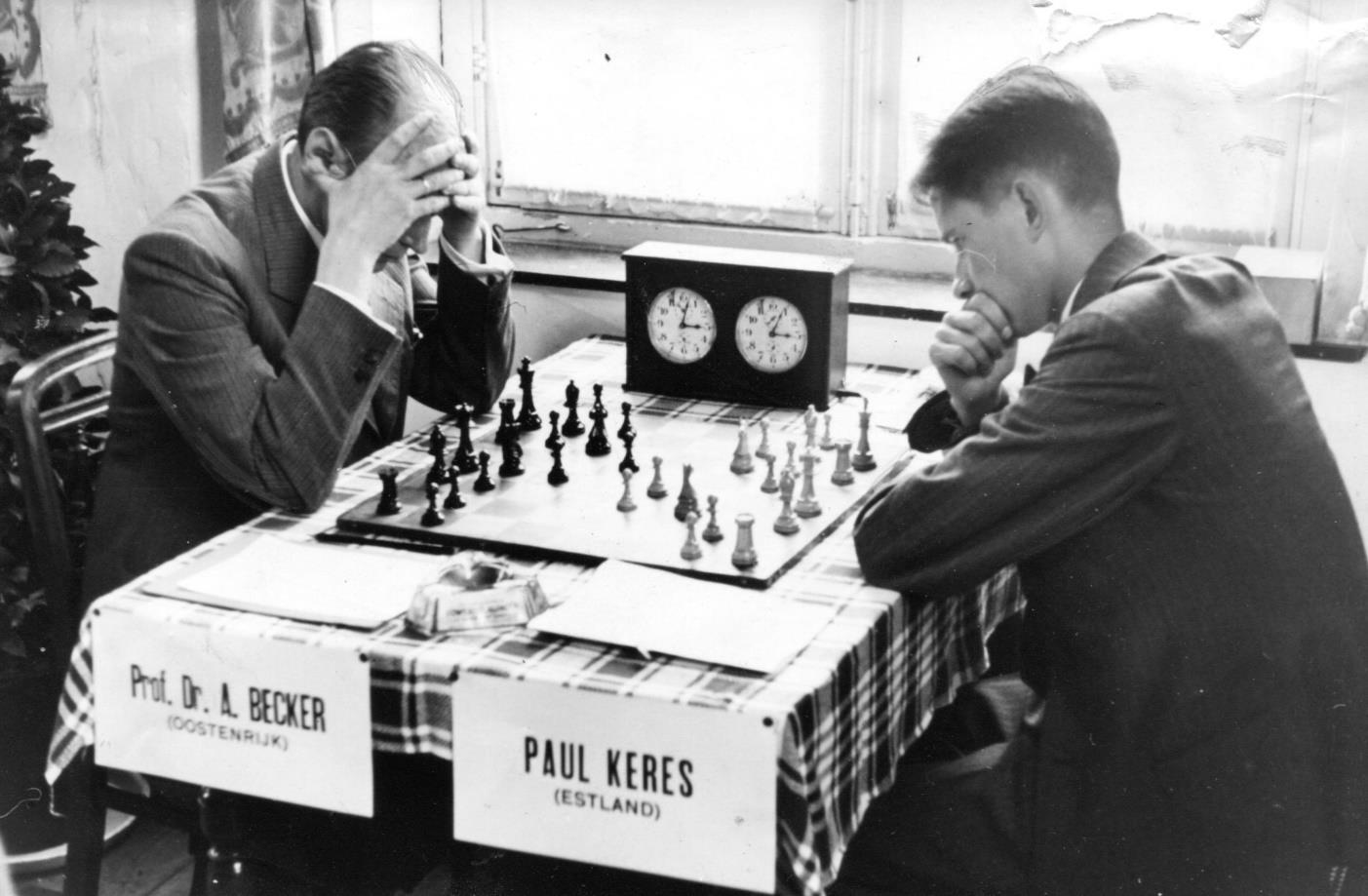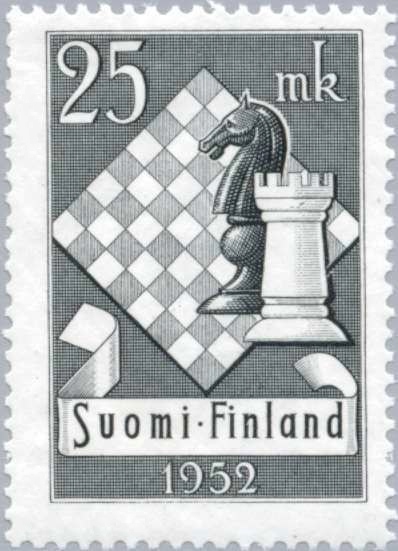|
Karl Poschauko
Karl Poschauko (born 1900, date of death unknown) was an Austrian chess master. At the beginning of his career, he took 3rd at Vienna 1921 ( Albert Becker won), shared 4th and won at Linz 1924, and took 3rd at Budapest 1926. He played, with a score of 7.5/15, at Kraków 1938 (Jaroslav Šajtar won), tied for 5-7th at Gablonz (Jablonec nad Nisou) 1938 (DSV, Karl Gilg won), shared 1st with Herbert Heinicke at Graz 1941, and won in the Austrian Chess Championship at Steyr 1952. He represented Austria in 3rd unofficial Chess Olympiad at Munich 1936, the first IFSB (''Internationaler Fernschachbund'') Correspondence Chess Olympiad in 1937-1939 (won team silver medal), and the 10th Chess Olympiad The 10th Chess Olympiad ( fi, 10. Shakkiolympialaiset; sv, Den 10:e Schackolympiad), organized by the FIDE and comprising an openAlthough commonly referred to as the ''men's division'', this section is open to both male and female players. team ... at Helsinki 1952. He also played in two fri ... [...More Info...] [...Related Items...] OR: [Wikipedia] [Google] [Baidu] |
Chess
Chess is a board game for two players, called White and Black, each controlling an army of chess pieces in their color, with the objective to checkmate the opponent's king. It is sometimes called international chess or Western chess to distinguish it from related games, such as xiangqi (Chinese chess) and shogi (Japanese chess). The recorded history of chess goes back at least to the emergence of a similar game, chaturanga, in seventh-century India. The rules of chess as we know them today emerged in Europe at the end of the 15th century, with standardization and universal acceptance by the end of the 19th century. Today, chess is one of the world's most popular games, played by millions of people worldwide. Chess is an abstract strategy game that involves no hidden information and no use of dice or cards. It is played on a chessboard with 64 squares arranged in an eight-by-eight grid. At the start, each player controls sixteen pieces: one king, one queen, two rooks, t ... [...More Info...] [...Related Items...] OR: [Wikipedia] [Google] [Baidu] |
Albert Becker (chess Player)
Albert Becker (5 September 1896 in Vienna – 7 May 1984 in Vicente López), also known as Alberto Becker, was an Austrian– Argentine chess master. Chess career Early career In 1921, he won in Vienna. In 1923, he tied for 4-5th in Frankfurt (23rd DSB Kongress). The event was won by Ernst Grünfeld. In 1924, he tied for 2nd-3rd with Carls, behind Wagner, in Bremen. In 1924, he won a match against Heinrich Wagner (+3 –1 =4) in Hamburg. In 1924, he won ahead of Post and Gruber in Vienna. In 1925, he tied for 5-7th in Breslau (24th DSB Kongress). The event was won by Efim Bogoljubow. In 1925, he tied for 1st-2nd with Wolf in Vienna. In 1926, he tied for 4-5th in Vienna (10th Trebitsch-Turnier). The event was won by Rudolf Spielmann. In 1927, he tied for 1st with Friedrich Sämisch in Mittweida. In 1927, he tied for 1st with Hans Müller in Vienna. In 1928, he tied for 2nd-5th in Vienna. In July–August 1928, he took 8th in the Amateur World Championship in The Hague. The eve ... [...More Info...] [...Related Items...] OR: [Wikipedia] [Google] [Baidu] |
Jaroslav Šajtar
Jaroslav Šajtar (December 3, 1921 – February 4, 2003) was a Czech chess master and an honorary grandmaster, born in Ostrava. He won at Kraków 1938, thrice placed joined 4th at Choceň 1942, Prague 1943 (Alexander Alekhine won), Zlín 1943, and 4th at Teplitz-Schönau 1947. His peak years were about 1950, his best results being shared 2nd with Isaac Boleslavsky, Luděk Pachman, and Vasily Smyslov at Warsaw 1947 and 3rd at Bucharest 1949. Šajtar played on the Czechoslovak team against Great Britain in 1947 and in the Helsinki 1952 and Amsterdam 1954 Olympiads. team chess record at olimpbase.org He finished 2nd in the 1952 Czechoslovak Championship. [...More Info...] [...Related Items...] OR: [Wikipedia] [Google] [Baidu] |
Karl Gilg
Karl Gilg (20 January 1901, in Mankovice (Mankendorf), Austrian Silesia – 4 December 1981, in Kolbermoor, Bavaria) was a German chess International Master from Czechoslovakia. Biography Gilg played for Czechoslovakia in several Chess Olympiads.Gilg, Karl team chess record from olimpbase.org * In 1927, at second board in 1st Olympiad in London (+5 −3 =5); * In 1928, at first board in 2nd Olympiad in (+5 −3 =4); * In 1931, at second board in [...More Info...] [...Related Items...] OR: [Wikipedia] [Google] [Baidu] |
Herbert Heinicke
Herbert Heinicke (14 March 1905, Porto Alegre, Brazil – 4 April 1988, Hamburg) was a German chess master. Biography He, like Carlos Otto Junge and Klaus Junge, left South America for Hamburg, Germany. In 1930, he took 2nd, behind Heinrich Wagner, and lost a match to him (3,5 : 8,5) in Hamburg. In 1931, he won a match against Heinrich Reinhardt in Hamburg (6,5 : 3,5). In 1932, he took 3rd, behind Alfred Brinckmann and Kurt Richter, in Kiel, and won in Hamburg–Altona. In 1933, he won in Hamburg–Bahrenfeld, and took 3rd in Swinemünde (Ludwig Engels and Koch won). He tied for 4-6th at Bad Aachen 1934 (2nd GER-ch, Carl Carls won); tied for 2nd-3rd with Ludwig Rellstab, behind Efim Bogoljubow, at Bad Saarow 1935; tied for 6-7th at Bad Nauheim 1936 (Alexander Alekhine and Paul Keres won); tied for 4-5th at Bad Harzburg 1938 (Vasja Pirc won); tied for 2nd-4th at Bad Elster 1939 (Erich Eliskases won), and tied for 6-9th at Bad Oeynhausen 1939 (6th GER-ch, Eliskases won). During Wo ... [...More Info...] [...Related Items...] OR: [Wikipedia] [Google] [Baidu] |
Austrian Chess Championship
The Austrian Chess Championship is held by the Austrian Chess Federation (''Österreichischer Schachbund''). For its correspondence chess subdivision, see OESB-FS. Unofficial Championships : Official Championships *Erich Eliskases won two matches for the title against Rudolf Spielmann in 1936 (5.5 : 4.5), and in 1937 (6 : 4), both in Semmering. : Official Championships (women) : References * (results through 1985)Staatsmeisterschaften der Herren {{Chess national championships [...More Info...] [...Related Items...] OR: [Wikipedia] [Google] [Baidu] |
3rd Unofficial Chess Olympiad
The 3rd unofficial Chess Olympiad was held by German Chess Federation (''Grossdeutscher Schachbund'') as a counterpart of the 1936 Summer Olympics in Berlin with reference to 1924 and 1928 events. Many Jewish chess players took part in the event. Significantly, the "Jewish" teams of Hungary (i.e. Lajos Steiner, Endre Steiner, László Szabó, Ernő Gereben, Kornél Havasi) and Poland (i.e. Paulino Frydman, Miguel Najdorf, Henryk Friedman, Leon Kremer, Henryk Pogorieły) beat "Aryan" Germany. Also Jewish masters from other countries played leading roles there (i.e. Movsas Feigins, Gunnar Friedemann, Imre König, Lodewijk Prins, Isakas Vistaneckis, Emil Zinner, etc.). The ''Schach-Olympia 1936'' took place in Munich between August 17 and September 1, 1936. In that extra-Olympiad (non-FIDE) 208 participants, representing 21 countries, played 1680 games. The Munich unofficial Olympiad was the biggest team competition ever held.Stanisław Gawlikowski: ''Olimpiady szachowe 1924-1974'', W ... [...More Info...] [...Related Items...] OR: [Wikipedia] [Google] [Baidu] |
Internationaler Fernschachbund
The Internationaler Fernschachbund (IFSB) was an international correspondence chess organisation, founded in 1928 and dissolved in 1939. It was superseded in 1945 by the International Correspondence Chess Association (ICCA) and after a restructuring in 1951 adopted the name of the International Correspondence Chess Federation (ICCF). Creation In August 1928 the (ICSB), was created under the leadership of Erich Otto Freienhagen in Berlin. This group had existed in a loose form since November 1927, and included J.W. Keemink, H. W. von Massow, K. Laue, C. Olsen and F. Schild. This was the first successful attempt to create an international correspondence chess federation. Unfortunately, it survived for only a short period, although its successor proved to be viable. On 2 December 1928 a new federation was formed in Berlin. To distinguish it from its predecessor, it was named the . The founders were Dr. Rudolf Duhrssen (first President), Johannes W. Keemink (second President), Ha ... [...More Info...] [...Related Items...] OR: [Wikipedia] [Google] [Baidu] |
10th Chess Olympiad
The 10th Chess Olympiad ( fi, 10. Shakkiolympialaiset; sv, Den 10:e Schackolympiad), organized by the FIDE and comprising an openAlthough commonly referred to as the ''men's division'', this section is open to both male and female players. team tournament, as well as several other events designed to promote the game of chess, took place between August 9 and August 31, 1952, in Helsinki, Finland. The Olympiad was especially notable for the debut of the Soviet team, who instantly won their first gold medals and went on to completely dominate the Olympiads for the next four decades. After the tournament, it was generally agreed that the small preliminary and final groups of only 8–9 teams left too much open to chance, since a single blunder would have an impact too big on the final standings. Consequently, FIDE decided that in the future, no final should have less than 12 participants. Results Preliminaries Twenty-five teams entered the competition and were divided into three ... [...More Info...] [...Related Items...] OR: [Wikipedia] [Google] [Baidu] |
Austrian Chess Players
Austrian may refer to: * Austrians, someone from Austria or of Austrian descent ** Someone who is considered an Austrian citizen, see Austrian nationality law * Austrian German dialect * Something associated with the country Austria, for example: ** Austria-Hungary ** Austrian Airlines (AUA) ** Austrian cuisine ** Austrian Empire ** Austrian monarchy ** Austrian German (language/dialects) ** Austrian literature ** Austrian nationality law ** Austrian Service Abroad ** Music of Austria **Austrian School of Economics * Economists of the Austrian school of economic thought * The Austrian Attack variation of the Pirc Defence chess opening. See also * * * Austria (other) * Australian (other) * L'Autrichienne (other) is the feminine form of the French word , meaning "The Austrian". It may refer to: *A derogatory nickname for Queen Marie Antoinette of France *L'Autrichienne (film), ''L'Autrichienne'' (film), a 1990 French film on Marie Antoinette with ... [...More Info...] [...Related Items...] OR: [Wikipedia] [Google] [Baidu] |
1900 Births
Nineteen or 19 may refer to: * 19 (number), the natural number following 18 and preceding 20 * one of the years 19 BC, AD 19, 1919, 2019 Films * ''19'' (film), a 2001 Japanese film * ''Nineteen'' (film), a 1987 science fiction film Music * 19 (band), a Japanese pop music duo Albums * ''19'' (Adele album), 2008 * ''19'', a 2003 album by Alsou * ''19'', a 2006 album by Evan Yo * ''19'', a 2018 album by MHD * ''19'', one half of the double album ''63/19'' by Kool A.D. * ''Number Nineteen'', a 1971 album by American jazz pianist Mal Waldron * ''XIX'' (EP), a 2019 EP by 1the9 Songs * "19" (song), a 1985 song by British musician Paul Hardcastle. * "Nineteen", a song by Bad4Good from the 1992 album '' Refugee'' * "Nineteen", a song by Karma to Burn from the 2001 album ''Almost Heathen''. * "Nineteen" (song), a 2007 song by American singer Billy Ray Cyrus. * "Nineteen", a song by Tegan and Sara from the 2007 album '' The Con''. * "XIX" (song), a 2014 song by Slipk ... [...More Info...] [...Related Items...] OR: [Wikipedia] [Google] [Baidu] |


